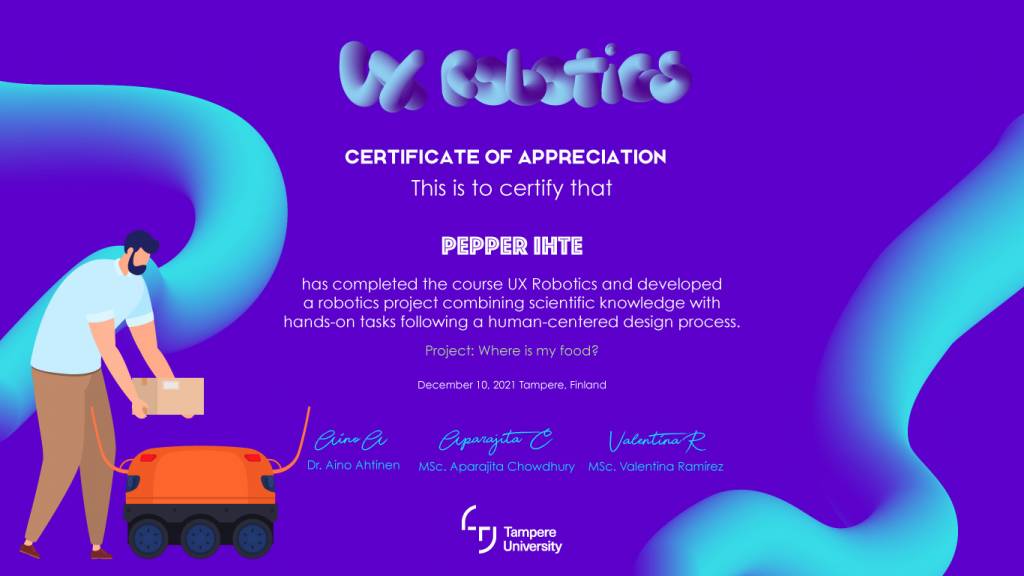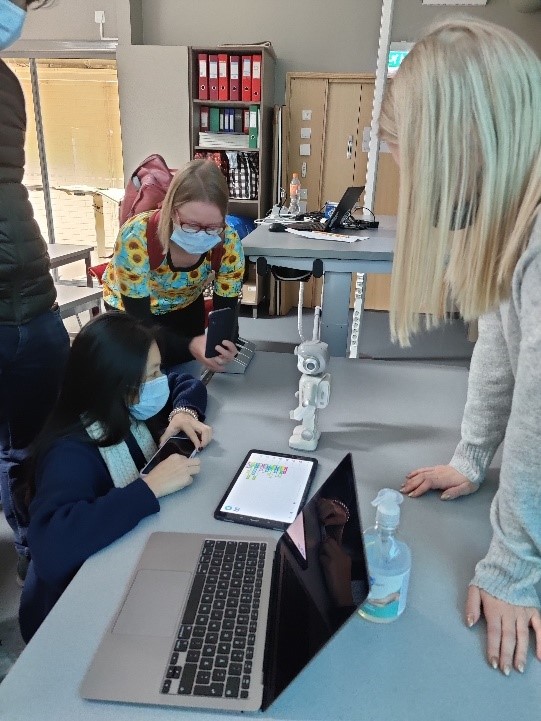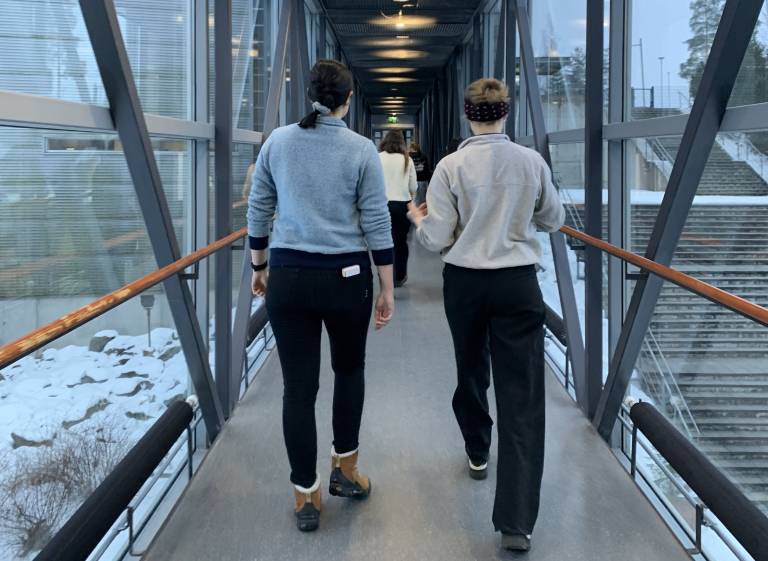In User Experience in Robotics course, the students get familiar with social robots, and other kinds of robot as well. We have great set of visiting lecturers from all over the world. The major part of the course consists of a team-based robotic project, where the small teams of 3-5 students make a quick design projects including literature search, user needs study, robotic concept design and small implementation, as well as a user evaluation of the concept. This year, we had students both in contact and remote learning modes. Throughout the course, we flexibly adapted our learning tasks and teaching activities to both modes. We had some new interesting robot platforms in the course, including Alpha Mini, Alpha 1E and ClicBot. which meant quite many new pieces to be handled both for the course staff and students 😊
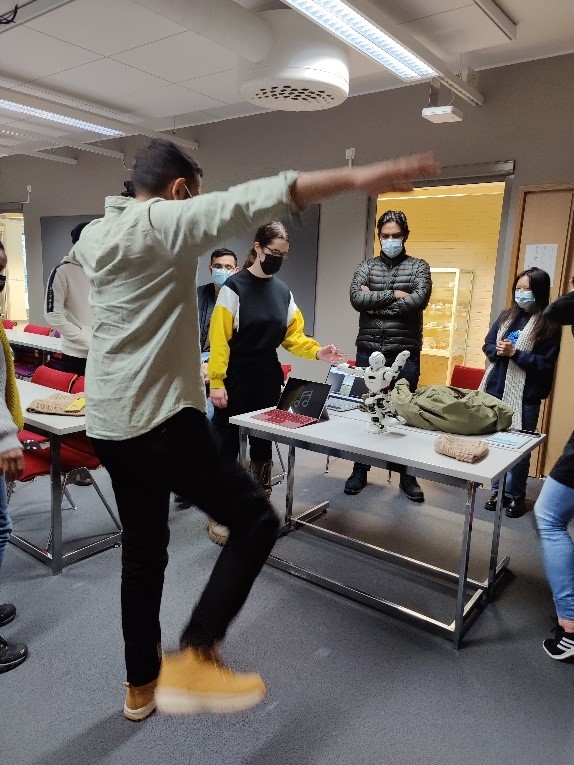
The students did really great in the course. This course is typically selected by the students with high enthusiasm and motivation to learn, and it was clearly visible also this year. The atmosphere in the class was relaxed and full of active work. Some phases of the project were quite hectic and needed lot of agile work, but in the end, most of the things were solved. Different kinds of emotions were visible, but is is very normal when working with things like robots, which may work.. or sometimes may not work.
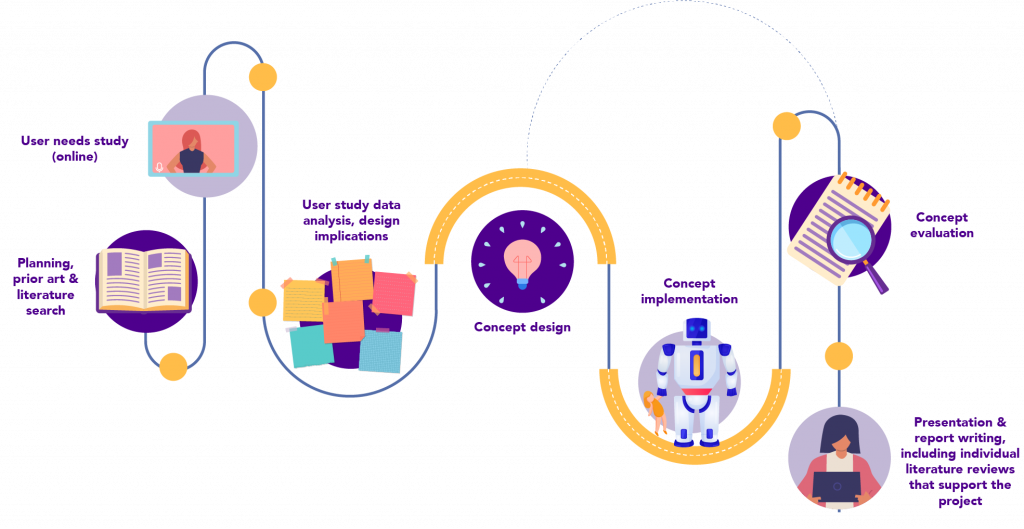
In the presentation session on 10.12 we gathered in Hervanta campus, and half of the students joined online. First, we heard 10-minutes presentations and opponent feedback of all of the participating teams (eight teams this year). We could see innovative concept designs, for example one online team had implemented their robotic demo in a virtual environment. We could hear how the target users of the designed concepts had perceived the concepts, and we were able to share some emotions raised during the process. Impressive work indeed! When it comes to the implementation of the hybrid session, some technical issues ofcourse existed, such as sometimes people in class or online could not hear the voice, see the screen sharing, or other things like that. The keyword was agility, flexibility and positive attitude. With those three we were able to handle the problems as a team.
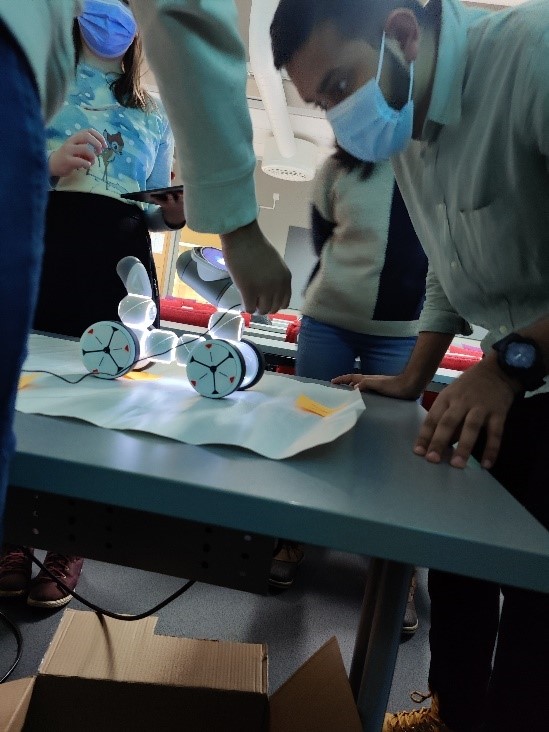
After the presentations, we had a half-an-hour demo session, where the in campus teams demonstrated their robotic demos. Half of the students were circulating on the stands and half of them were presenting at the time. Online students were following this part through the Teams link and by one person circulating between the demo stands with a mobile device. This part of the event was very funny. We saw impressive physical exercise movements conducted by Alpha 1E, a miniature barista robot implemented on ClicBot, a cute Alpha Mini as a sustainability educator (including nice humor), and another ClicBot acting as a fantasy creature to tell a story.
After the successful demo session we had the final ceremony of the course, where all of the students were provided a playful certificate for conducting the course, and it was time to close the course. Hopefully all of the participating students learned a lot about the robots, their design and evaluating them with the users, and hope to see you on board in the future as well!
Cheers, Aino, Valentina and Aparajita, the UXRO staff
